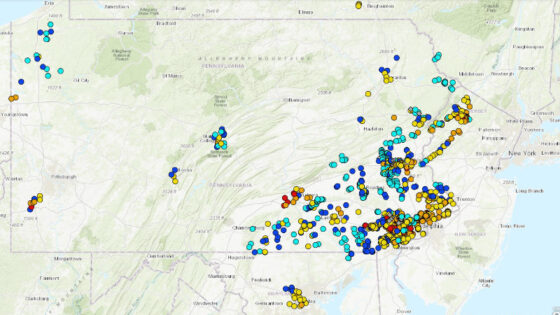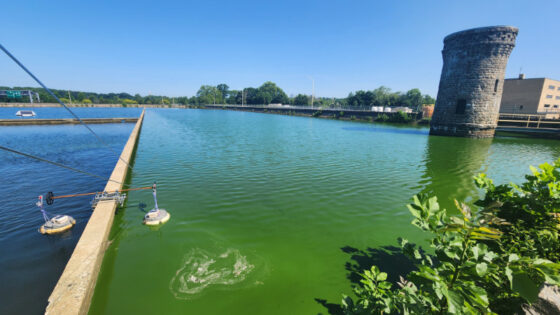By Matthew Gisondi, Diane Huskinson, Steven Kerlin, Tara Muenz, and Jennifer Totora
(This article originally appeared in the 2017 Annual Report.)
Young Heroes Are Not Only Learning How to Protect Our Waterways; They Are Also Conducting Their Own Scientific Research or Restoring Healthy Streams — or Sometimes Both.
Stroud Water Research Center’s efforts to educate schoolchildren about freshwater science and stewardship have grown by leaps and bounds in recent years. The fruit of that labor is much more than just the number of students participating in our programs (though that too has grown). What we are most proud of is the students themselves, who are taking what they have learned and putting it into action. Here are a few examples of young heroes who are not only learning how to protect our waterways, but also doing it, whether through conducting their own scientific research or restoring healthy streams — or sometimes both.
Students Monitor and Plant Streamside Forests
In the spring of 2017, more than 130 Girl Scouts and students from southeastern Pennsylvania schools helped the Stroud Center monitor streamside forests in the Middle Schuylkill and Brandywine-Christina watersheds. Some groups collected data on properties where trees already had been planted; others planted and monitored new trees.
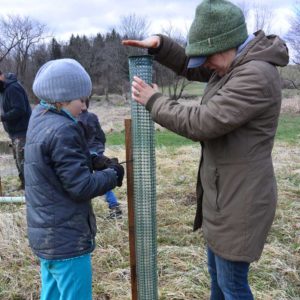
The in-field, service-learning opportunities were funded by a grant from the William Penn Foundation.
Two of the groups, Junior Girl Scout Troop 457 and Westtown School, helped Distinguished Research Scientist Bern Sweeney, Ph.D., with a research project comparing the effectiveness of two different kinds of tree shelters. They gathered at Taylor Run to plant trees, install tree shelters, and collect data on 300 trees. Located within the Stroud Preserve, Taylor Run is a tributary of the east branch of the Brandywine River that is in great need of restoration, as it receives urban stormwater and lacks a healthy riparian corridor.
“Helping at the preserve helped us to earn our Bronze Service Award, which is the highest honor a Junior Girl Scout can achieve,” said Junior Girl Scout Troop Leader Rolanda Hyman of Troop 457.
This area of the Stroud Preserve is in some way a legacy forest for the students involved in this project. Our intentions are to continue working with student groups to revisit the plantings, collect data, and maintain tree shelters.
Moving forward, results from this spring’s experiences will help Stroud Center staff understand the role students can play in collecting meaningful reforestation data for scientists and land managers.
Creek Explorers Make a Scientific Discovery
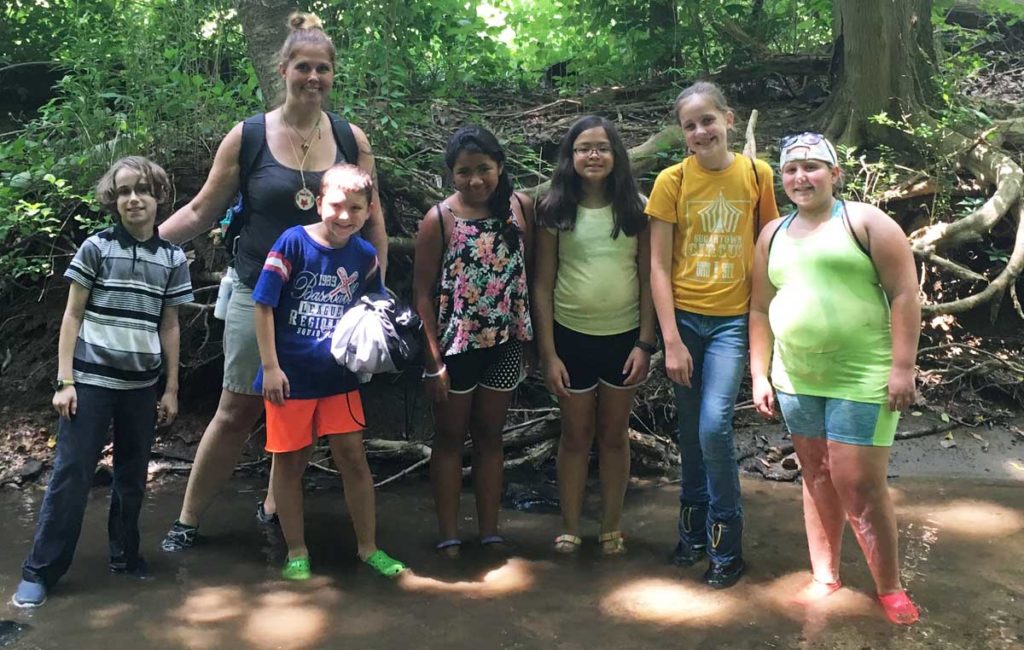
Last summer, the Stroud Center’s education department ran its first summer camp in partnership with West Chester University. Called Creek Explorers Camp, this weeklong day camp brought children ages 6 to 11 to the Robert B. Gordon Natural Area for Environmental Studies, a nearly 100-acre woodland on the South Campus of the university.
Once there, the young nature explorers participated in Stream Fever, a program funded by the National Science Foundation, which involves collecting and assessing stream temperature data. Walking along Plum Run and an ephemeral stream, they collected their data from a variety of ecosystems, including riffles, runs, pools, sun, and shade at upstream and downstream locations.
They made an exciting discovery. Temperatures in the ephemeral branch were higher than in the main branch of Plum Run. They concluded this higher temperature was most likely caused by a shallow, swampy area the ephemeral stream ran through, where the water had a chance to warm up. This conclusion was only possible because they had been hiking in every tributary of the stream through the natural area and had the chance to feel the water flowing around their feet.
By the end of the week, the children knew the area well, and having had the opportunity to collect real data on their own while simultaneously having free rein to explore and investigate, they were excited by their scientific discovery. Not only were they learning; they were loving it!
Fourth-Graders for Fresh Water
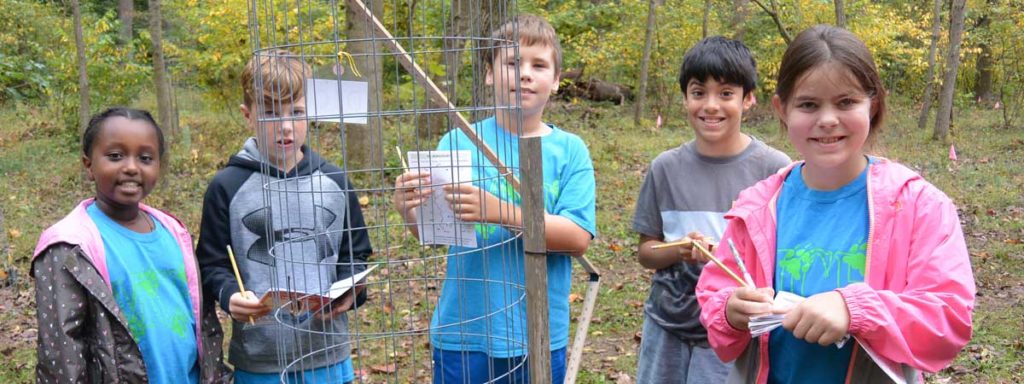
More than 900 fourth-grade students from 10 schools visited the Stroud Center last fall to learn about their impact on waterways, how to collect and interpret real scientific data, and why native trout need trees around their stream.
Their visit was the start of a new partnership between West Chester Area School District and the Stroud Center and was brought forth by Paul Joyce, the district’s supervisor of science and technology education. Joyce saw the need for students and teachers from his district to experience more hands-on science.
The first to experience the Stroud Center’s newly enhanced fourth-grade program, the students learned how insects have adapted to survive, how and why streamside forests protect freshwater ecosystems, and how to steward newly planted tree seedlings while collecting data about their growth. They also tracked stream pollution and raced rubber ducks to learn about stream habitats.
Each student received a field notebook to use during the field trip and back at school as they review concepts and reflect on their connection to water with their teachers.
Environmental Heroes-to-Be
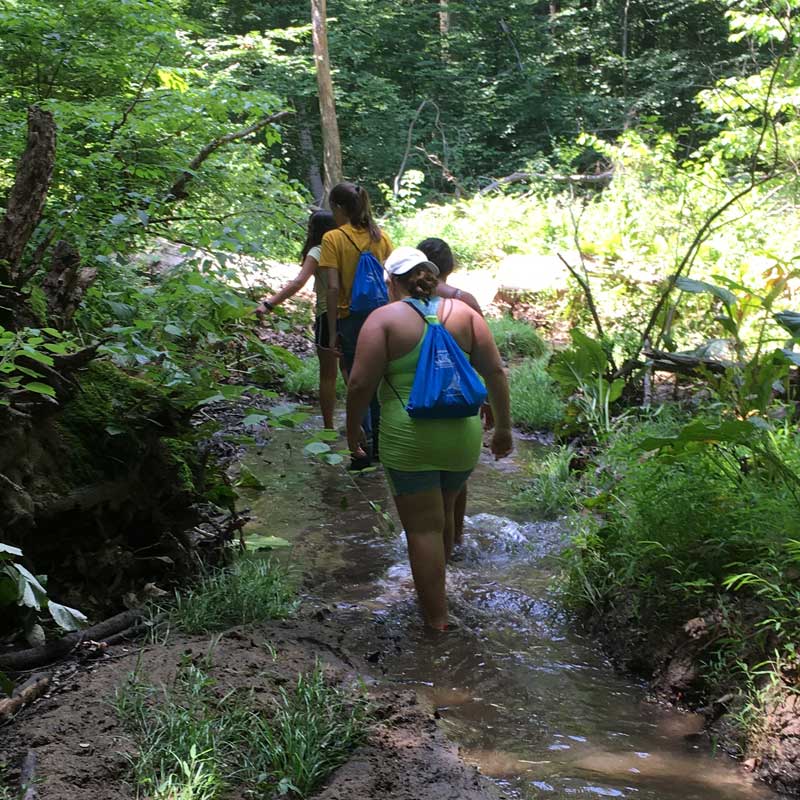
So that more students can share in experiences like the Creek Explorers Camp and Stream School, the Stroud Center recently entered into a cooperative agreement with the National Oceanic and Atmospheric Administration (NOAA) and Pennsylvania partners to improve and expand environmental literacy and watershed education and stewardship for Pennsylvania K-12 students and educators.
The Stroud Center–led project assembles a task force of representative leaders across the commonwealth to address environmental literacy. It does so by increasing the use of Meaningful Watershed Educational Experience (MWEE) programming — that is, locally relevant, hands-on programs that promote experiential learning, critical thinking, and actions to improve freshwater resources.
The Pennsylvania Watershed Education Task Force brings together approximately 25 collaborators from a mix of state agencies, leading environmental education organizations, business and industry leaders in the environmental workforce, post-secondary institutions, and K-12 schools. On the leadership team, the Stroud Center is joined by the Pennsylvania Department of Environmental Protection, Pennsylvania Department of Education, Pennsylvania Association of Environmental Educators, Pennsylvania Bureau of State Parks, and Millersville University.
With a three-year grant from NOAA, the task force is working to expand partnerships for advancing environmental literacy, increase the number of NOAA Bay Watershed Education and Training (B-WET) grant proposals, research and promote high-quality MWEEs, and provide training for approximately 400 watershed education professionals and traditional K-12 educators — all throughout the commonwealth.

